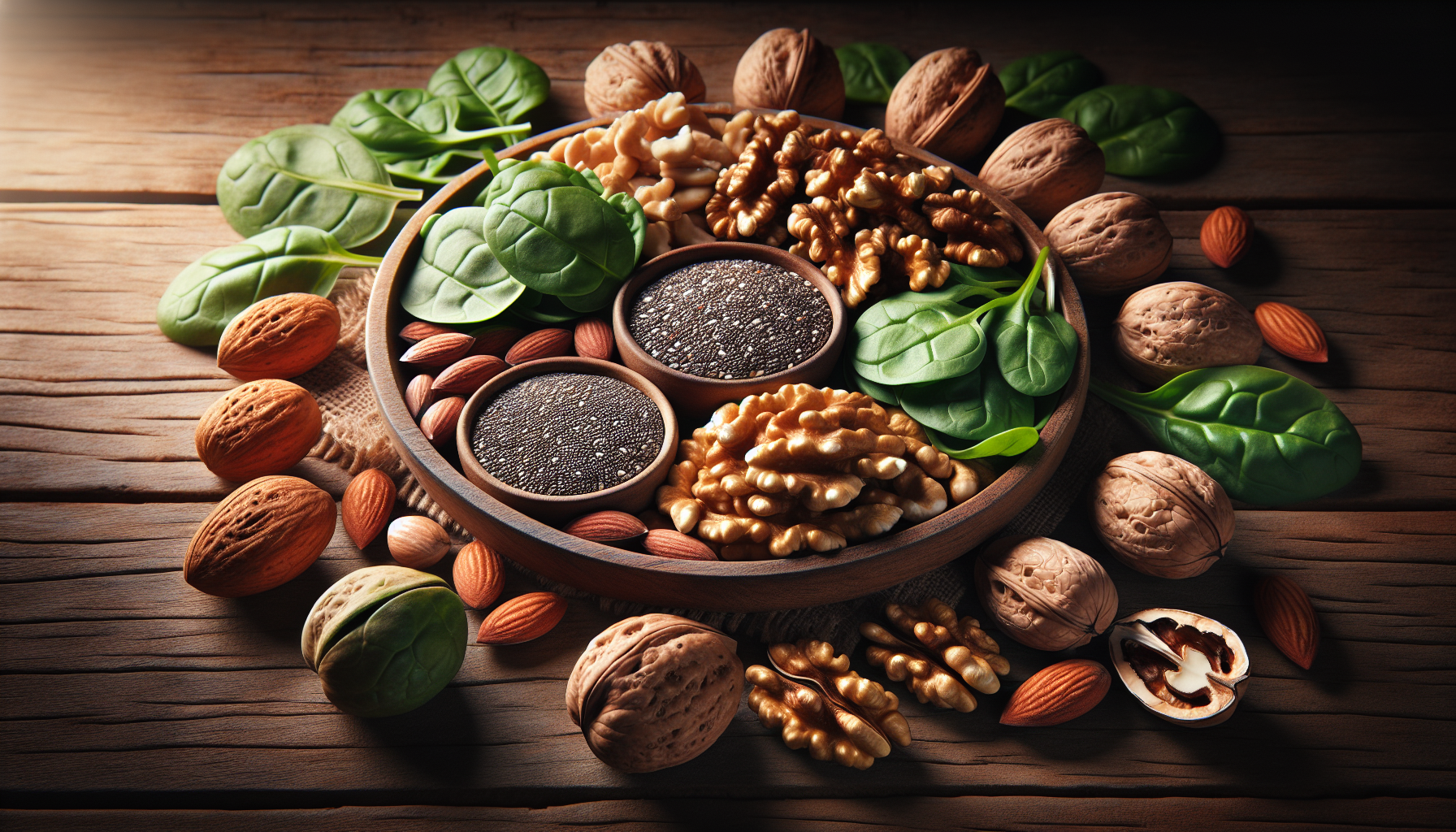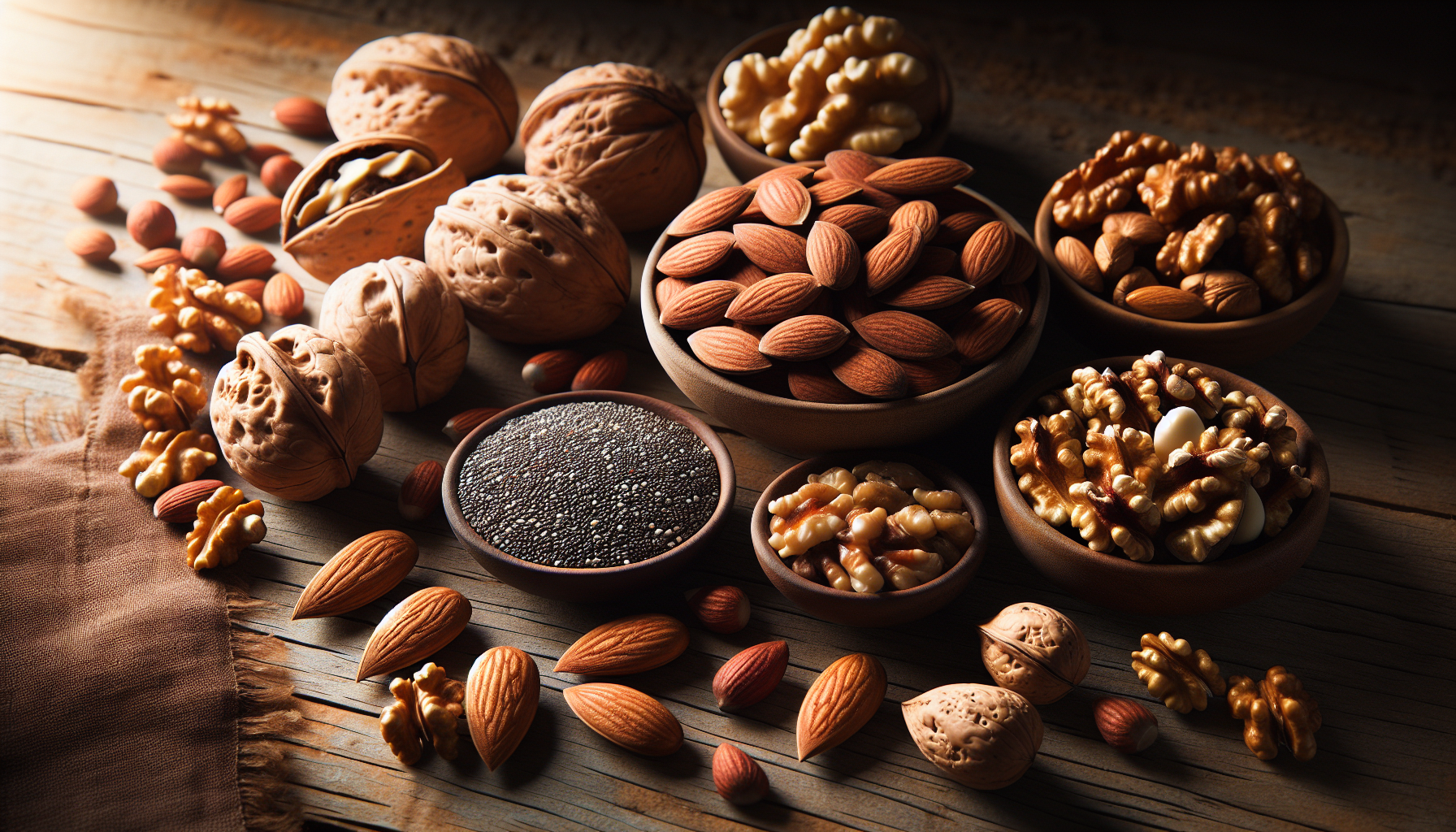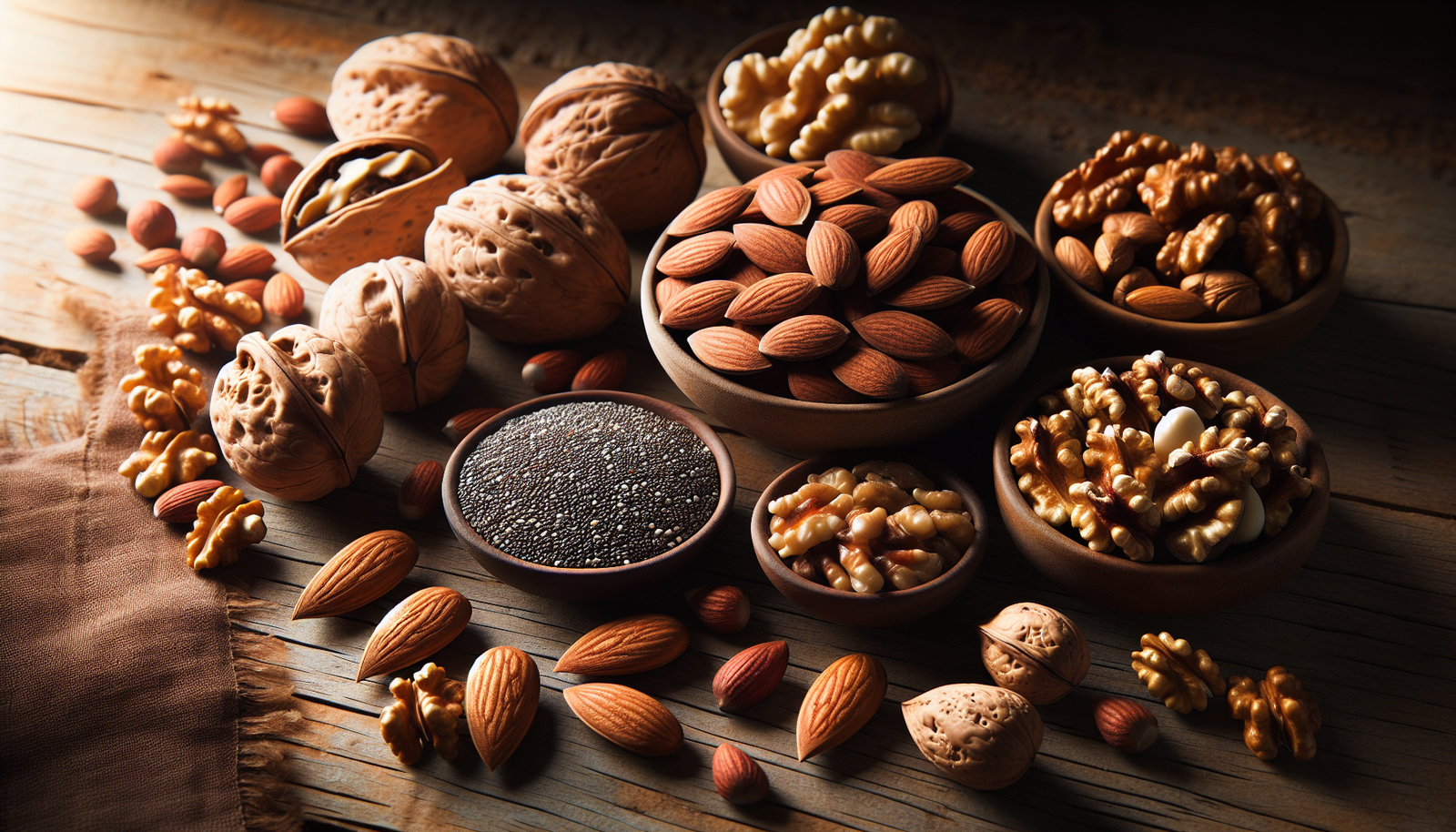Have you ever wondered how the foods you eat might be impacting your health in less obvious ways? Specifically, have you thought about how the oxalate content in seeds and nuts could be affecting your body? Let’s break it down and see how these seemingly innocuous snacks might play a larger role in your overall health.
Understanding Oxalates
Before diving into the specifics of seeds and nuts, let’s take a moment to understand what oxalates are. Oxalates, or oxalic acid, are naturally occurring compounds found in many plants. These compounds can bind to minerals in the body, notably calcium, and can potentially lead to health issues if consumed in excess. While oxalates are typically harmless in small amounts, they can create problems for some individuals.
Why Do We Care About Oxalates?
You might wonder why oxalates even matter. Well, let’s consider a few key points:
-
Kidney Stones: One of the most talked-about effects of high oxalate consumption is the development of kidney stones. Calcium oxalate stones are some of the most common types of kidney stones, and consuming foods high in oxalates can increase the risk.
-
Nutrient Absorption: Oxalates can interfere with the absorption of essential minerals like calcium and magnesium. If you often eat foods high in oxalates without a balanced diet, it could lead to deficiencies.
-
Health Conditions: Some individuals, particularly those with certain health conditions like hyperoxaluria or those who have had oxalate-related health issues, are advised to monitor their oxalate intake more carefully.
Getting to grips with oxalates doesn’t have to be daunting, especially when you know where to find them.
The Oxalate Content of Common Seeds
Let’s focus on seeds first. They often get overlooked in discussions about nuts, yet they can pack a powerful nutritional punch. However, they also come with varying levels of oxalates. Here’s a quick overview of some common seeds and their oxalate content.
| Seed | Oxalate Content (mg per 100g) |
|---|---|
| Chia Seeds | 0.5 – 4 |
| Flaxseeds | 10 – 40 |
| Pumpkin Seeds | 4 – 8 |
| Sesame Seeds | 5 – 20 |
| Sunflower Seeds | 0.7 – 8 |
Chia Seeds
Chia seeds are celebrated for their high fiber content and omega-3 fatty acids. They contain a relatively low amount of oxalates, which makes them a favorable option for most people. If you enjoy smoothies or pudding, throwing some chia seeds in can enhance your meal without much concern over oxalate levels.
Flaxseeds
Moving on to flaxseeds, these little seeds are often praised for their heart health benefits, thanks to their omega-3 content. However, they do carry a higher oxalate level than chia seeds. For most individuals, particularly if you’re eating a balanced diet, this shouldn’t be an issue. Still, if you have a history of kidney stones or oxalate sensitivity, it might be wise to keep an eye on your flaxseed intake.
Pumpkin Seeds
If you love snacking on pumpkin seeds, good news! They contain a relatively moderate level of oxalates. Not only are they tasty, but they also provide magnesium, zinc, and healthy fats. They can be an excellent addition to salads or simply enjoyed on their own.
Sesame Seeds
Sesame seeds may surprise you with their flavor and versatility. They also carry some oxalates but offer a wealth of nutrients including calcium, iron, and healthy fats. As with other seeds, moderate consumption is key.
Sunflower Seeds
Sunflower seeds are another healthy snack option. Their low to moderate oxalate content makes them a snack worth keeping around. They are packed with vitamin E and can add a crunchy texture to various dishes.
The Oxalate Content of Common Nuts
Now, let’s shift gears and talk about nuts. Nuts are often thought of as healthful snacks, but their oxalate content varies significantly from one type to another. Here’s a breakdown:
| Nut | Oxalate Content (mg per 100g) |
|---|---|
| Almonds | 120 – 270 |
| Cashews | 25 – 45 |
| Hazelnuts | 10 – 15 |
| Pecans | 70 – 160 |
| Walnuts | 25 – 80 |
Almonds
Almonds are often touted for their heart health benefits and high vitamin E content, but they come with a high oxalate level. If you enjoy almonds or almond products, it may be helpful to consume them in moderation, particularly if you have a history of kidney stones.
Cashews
Cashews strike a reasonably good balance with a more moderate oxalate content. They are delightful when added to stir-fries or enjoyed as a snack. So, if you’re a cashew lover, there’s less to worry about here.
Hazelnuts
If you’re partial to hazelnuts, you can enjoy them with less anxiety about oxalates. Their lower content makes them a great choice for adding to desserts or enjoying raw.
Pecans
Pecans are another tasty option, but keep in mind their moderate oxalate levels. They’re fantastic in pies and salads, but if you’re prone to oxalate issues, moderation is key.
Walnuts
Walnuts round out this nutty discussion. With moderate oxalate levels, walnuts are a welcome addition to many dishes, offering omega-3 fatty acids and other nutrients. Again, moderation will serve you well here.
Health Implications of High Oxalate Foods
You might be asking yourself how much oxalate is too much. The answer isn’t straightforward, as it varies by individual. Factors such as your overall health, how much other oxalate-containing foods you consume, and your hydration levels play a role.
Kidney Stones
As mentioned earlier, one of the primary concerns with high oxalate consumption is the risk of kidney stones. If you’re prone to kidney stones, it’s especially crucial to pay attention to the oxalate content of the foods you’re eating. A good rule of thumb is to balance your oxalate consumption with adequate fluid intake and calcium-rich foods.
Nutraceuticals and Supplements
For someone who’s taken a more proactive approach to health, you might find yourself looking into supplements or nutraceuticals. Some studies suggest that calcium can help bind oxalates, preventing their absorption. However, it’s essential to talk to your healthcare provider before starting any new regimen.
Genetic Factors
Interestingly, not everyone digests oxalates the same way. Genetic factors can influence how your body processes and eliminates oxalates. A condition called primary hyperoxaluria increases the risk of kidney stones and requires a much more cautious approach to oxalate intake.

Managing Oxalate Intake
So, how do you effectively manage your oxalate intake? Here are a few actionable tips you might find helpful.
Balance is Key
You don’t have to eliminate seeds and nuts entirely from your diet. Rather, focus on balance. If you’re consuming high-oxalate foods, pair them with calcium-rich foods to help reduce absorption. Think about adding dairy products or fortified plant milks alongside your meals.
Stay Hydrated
Hydration plays a crucial role in kidney health. Drinking plenty of water can help dilute oxalates in your urine, reducing the risk of stone formation. So, make it a point to sip throughout the day.
Variety of Foods
By including a variety of foods in your diet, you give your body a better chance to absorb nutrients effectively. If you find one type of nut or seed is causing issues, don’t hesitate to try different kinds that may be lower in oxalates.
Knowledge is Empowering
Get familiar with your food choices. By understanding which nuts and seeds are higher in oxalates, you can make informed decisions that align with your health goals. As you experiment with different foods, pay attention to how your body feels, as this can guide you toward what works best for you.

Conclusion
When it comes to food, knowledge is truly power. Understanding the oxalate content in nuts and seeds can help you make healthier choices tailored to your lifestyle and needs. While it’s important to be mindful of your oxalate intake, odds are that you can still enjoy a variety of delicious seeds and nuts without compromising your health.
Navigating the world of nutrition doesn’t have to be overwhelming. By striking a balance and staying informed, you can enjoy the unique flavors and health benefits that nuts and seeds bring to your table. You owe it to yourself to create a nourishing, healthful eating experience that suits your individual needs.




